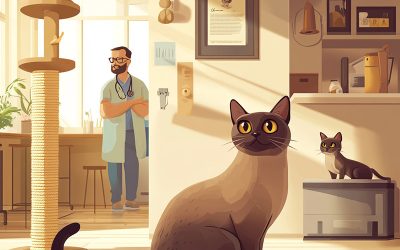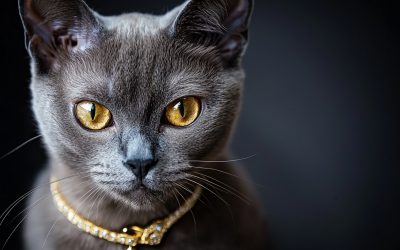Purchasing Your Cat from a Breeder: Why It Matters and What to Look For
Bringing a cat into your life is a decision filled with excitement, anticipation, and a fair amount of responsibility. While adoption from shelters is an option many consider, purchasing a cat from a reputable breeder is an alternative that offers unique advantages—especially when you are looking for a specific breed, such as Burmese, Mandalay, Burmilla, or Tonkinese.
However, not all breeders are created equal. Choosing a registered breeder ensures not only the health and temperament of your cat but also ethical breeding practices that protect the breed’s integrity. This article explores why buying from a responsible breeder matters and what to look for when selecting one.
Why Purchase from a Reputable Breeder?
1. Ensuring Ethical and Responsible Breeding
A reputable breeder prioritises the health, temperament, and well-being of their cats above profit. They do not simply produce kittens for commercial gain but work toward maintaining and improving the breed.
Ethical breeders follow strict guidelines, such as those set by New Zealand Cat Fancy (NZCF), to ensure:
- Proper socialisation of kittens
- Health screenings for genetic conditions
- Responsible breeding limits to prevent overbreeding
These breeders play a crucial role in preserving breeds like Burmese, Mandalay, Burmilla, and Tonkinese, ensuring future generations of healthy and well-adjusted cats.
2. Guaranteeing Health and Genetic Screening
Unlike backyard breeders or kitten mills, a responsible breeder may conduct genetic tests and health checks to screen for breed-specific diseases in their litters. For example:
- Burmese cats can be prone to diabetes and hypokalemia (low potassium levels).
- Mandalay and Burmilla breeds may require careful monitoring for inherited heart conditions.
- Tonkinese cats may be susceptible to respiratory issues due to their brachycephalic traits.
While these conditions can occur in Burmese and related breeds, it’s important to remember that the vast majority of cats; 99.9%—will never experience these issues. Like any breed, Burmese, Mandalay, Burmilla, and Tonkinese cats have some genetic tendencies, but regular veterinary care can greatly reduce the risks. Most cats live long, healthy lives without ever developing these conditions. Being aware of potential health concerns simply helps owners stay informed and proactive in their cat’s care, ensuring they remain happy and well for many years.
3. Predictable Temperament and Socialisation
Kittens from registered breeders are well-socialised, meaning they:
- Have positive human interactions from a young age
- Are introduced to various household noises and environments
- Have spent time with their mother and littermates, learning proper cat behaviour
Well-socialised kittens adapt quickly to their new homes, making the transition easier for both the cat and owner.
What to Look for in a Breeder
✅ 1. Registration with Recognised Organisations
A reputable breeder should be registered with an official organisation, such as NZCF or an international equivalent. Membership in BCCNZ (Burmese Cat Club of New Zealand) is also a strong sign of credibility. These organisations have strict ethical guidelines that breeders must adhere to.
🔍 Red flag: A breeder unwilling to provide their registration details is a cause for concern.
✅ 2. Transparent Breeding Practices
An ethical breeder will provide:
- A full history of the kitten’s health and lineage
- Vaccination and deworming records
- Details about the parents, including health tests
- A contract outlining responsibilities
🔍 Red flag: If a breeder refuses to share health records, it's best to walk away.
✅ 3. Kittens Stay with Their Mother Until at Least 12 Weeks
Kittens learn crucial social skills from their mother and littermates, and separating them too early can lead to behavioural issues. A responsible breeder will not let kittens leave before 12-14 weeks of age.
🔍 Red flag: Breeders selling kittens at 6-8 weeks are not acting in the kitten’s best interests.
✅ 4. Ethical Breeding Limits
Overbreeding can lead to genetic health problems and exhaustion for the mother cat. A good breeder will limit how often a queen (female cat) has kittens and ensure she has proper care between litters.
🔍 Red flag: If a breeder always has kittens available, they may be prioritising profit over welfare.
✅ 5. A Willingness to Stay in Touch
A good breeder cares where their kittens go and will:
- Ask you questions about your home and lifestyle
- Offer advice on care and feeding
- Be available for ongoing support
🔍 Red flag: A breeder who doesn’t ask you any questions or rushes the sale.
Questions to Ask a Breeder Before Buying a Kitten
Before purchasing, ensure you ask the breeder:
- Can I visit your cattery and meet the kittens and parents?
- What genetic tests have been done on the parents?
- What vaccinations and deworming treatments have been given?
- What kind of food are the kittens currently eating?
- Can I see the kitten’s pedigree and registration documents?
- Do you have references from past buyers?
A Final Thought on Reputable Breeding
"A breeder’s role is not just to produce kittens, but to preserve the future of a breed."
Choosing to buy from a reputable breeder means you are supporting ethical breeding practices, ensuring the welfare of your cat, and maintaining the integrity of beloved breeds like the Burmese, Mandalay, Burmilla, and Tonkinese.
For more information on Burmese and related breeds, check out our breed profiles and choosing a cat articles.



0 Comments